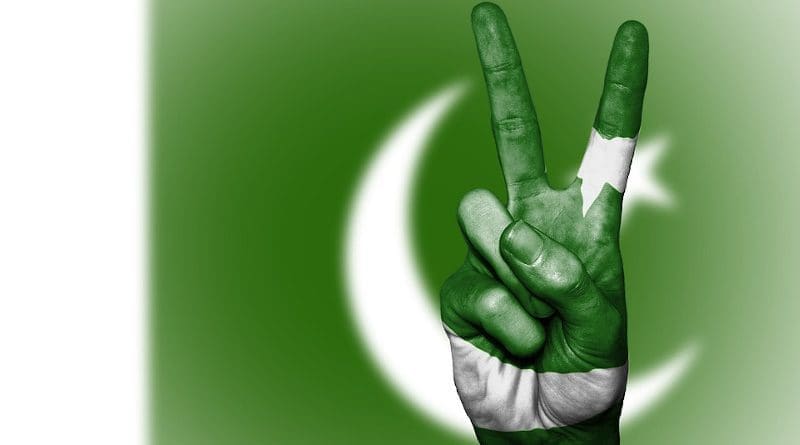Emerging Security Challenges For Pakistan – OpEd
By Sheraz Wahid
In October 2022, a lethal bomb killed 53 individuals at schooling focus in Kabul is an unforgiving sign of the proceeded with psychological militant danger radiating from Afghanistan. No terrorist organization accepted liability regarding the assault. In any case, the needle of doubt focuses at the Islamic State Khorasan Province (ISKP), as it fits the group’s pattern of targeting and tactics. ISKP, through its vicious assaults, has endeavored to make precariousness and instability in Afghanistan and beyond the borders.
Since coming to power, the Taliban have guaranteed the international community that they will stick to global standards and the particulars of the 2020 Doha Arrangement, under which they gave guarantees of not permitting any “International terrorist groups or individuals,” including the Islamic Territory of Khorasan (ISKP) and al-Qaeda, to utilize Afghan soil against the South Asian countries particularly Pakistan and different nations. Similar affirmations were given to the adjoining nations independently through two-sided gatherings and arrangements. Be that as it may, a May 2022 letter by the Chair of the Security Council Committee Established pursuant to Resolution 1988 (2011) addressed to the Leader of the UN Security Council highlighted the inconsistencies in the Taliban’s confirmations and activities. For example, joints between al-Qaeda and the Taliban are either unblemished or have extended throughout the course of recent years.
Under the Taliban, the al-Qaeda would probably feel like it works in a place of refuge and has more noteworthy opportunity of activity. Then again, the ISKP has, since August 2021, acquired in strength in its tasks against the Taliban and innocent Afghan individuals. The presence in Afghanistan of dread outfits from the adjoining nations is likewise a reason for concern. Furthermore, breaks and opposition inside the Taliban has made the circumstance in Afghanistan more unstable, with an expected effect across Eurasia.
Consequently, India, Pakistan and the Central Asian region (CAR) are looking for more noteworthy combination on handling the intensified security, geostrategic, and geo-financial aspects dangers arising in the outcome of the Taliban’s return to power. In January 2022, Modi held a virtual gathering with his counterparts in the CAR’s republics to examine what is happening in Afghanistan and its suggestions on provincial security and strength. The pioneers consented to keep holding close interviews on Afghanistan and laid out a joint working group at the senior authorities’ level.
Undoubtedly, Pakistan is invulnerable to these misleading publicity strategies all things considered. ISKP complements continuous sectarianism in Pakistan by essentially focusing on Pakistan’s Shia minority. Shia Muslims in Pakistan have been especially defenseless against vigilantism and partisan brutality since General Zia-ul-Haq’s administration. ISKP publicity has taken advantage of these divisions by selecting recruits, particularly from Balochistan and Khyber Pakhtunkhwa due to its lethality. Furthermore, the immature areas of Pakistan have stayed the excellent concentration by any non-state actor.
Beside Pakistan, the groups have extended its concentration to incorporate the more extensive Central Asian region and Russia. On September 5, it hit the Russian government office in Kabul, killing two Russian ambassadors and four Afghan people. In April, the groups terminated rockets from its fortification in northern Afghanistan at an army installation in Termez, Uzbekistan. Moreover, it strengthened web promulgation in Focal and South Asia to select new warriors and raise funds. The outcome of these publicity endeavors stays obscure, yet this technique assisted ISKP with picking up speed. Besides, it conveyed a message to Russian and Central Asian region, cautioning them against by helping out the Taliban.
The Taliban’s re-emergence in Afghanistan’s has opened a Pandora box of radicalism, fanaticism, and narco-dealing. The presence of dread outfits, like the ISKP and al-Qaeda and others, has additionally made the Eurasia region more vulnerable. In this case, recruitment activities by the ISKP have seen a vertical swing lately, even as the release of the group members from Afghan jails has expanded its solidarity. The ISKP has seen some accomplishment with its enlistment exercises, essentially because of the Taliban sidelining ethnic Uzbeks and Tajiks since its return. For example, in December 2021, the Haqqani-led Badri 313 Battalion incapacitated a huge gathering of Uzbeks from the Taliban’s positions on the guise of their relations with the ISKP, and a Tajik Taliban pioneer was likewise sidelined for a similar explanation. Another variable driving the ISKP’s for recruitment is the complaints among some Taliban individuals about not being paid pay rates and Pashtuns being leaned toward inside the group’s ranks.
Geostrategic location of Pakistan, multi ethnic group and political precariousness, strains with India draws in non-state entertainers to risk the tranquility of a country. Central and South Asian nations ought to pool their assets and participate on a multi-pronged way to deal with counter the security dangers presented by ISKP’s promulgation campaigns. Jumpstarting counter-promulgation campaign, incorporating digital elements into joint military training sessions, implementing digital cooperation tools, and using existing multilateral frameworks would feature the strengths of each country’s arsenal and simultaneously target each component of ISKP’s network. These strategies will help South and Central Asian nations in keeping ISKP from expending beyond Afghanistan and enlisting their residents to join the terrorist organization.
To conclude, engaging with the Taliban, Pakistan and the CARs could pressurize Taliban’s regime for the recognition of women and other fundamental rights in Afghanistan. Afghan leadership should shift its focus for state security by initiating comprehensive plans of action against terrorism. The nations ought to work intimately with compassionate associations on the ground to prevail upon the harmony cherishing. Nonetheless, they should not focus on counterfeit dependability over a comprehensive government or democratic rights.
Sheraz Wahid is currently doing his MS-International Relations from International Islamic University Islamabad (IIUI). The author area of interest covers International Politics and strategic affairs of South Asia.

